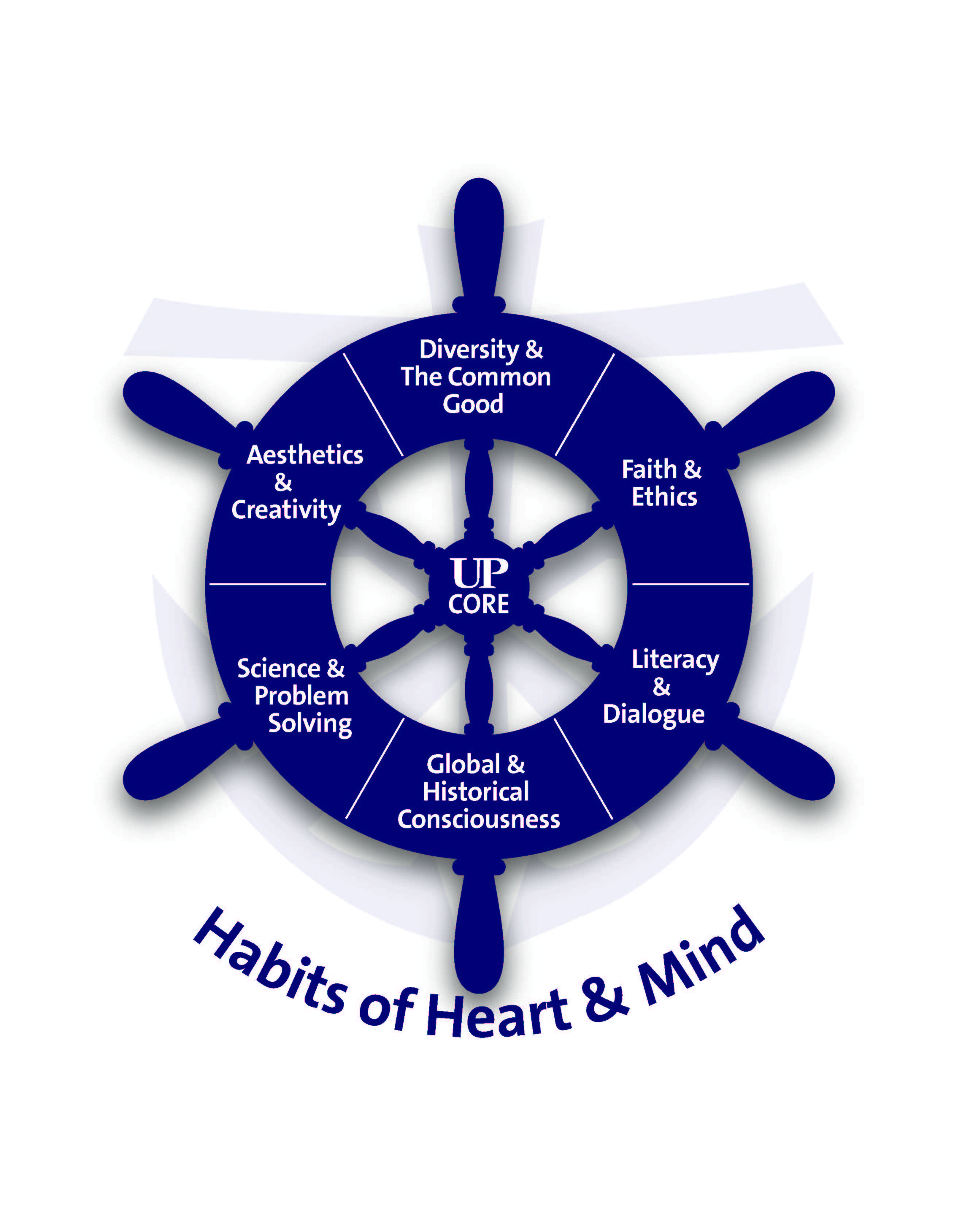
 Rooted in the liberal arts while drawing on Catholic intellectual traditions and Holy Cross values, the University of Portland Core emphasizes breadth, ethical reflection, and inclusive intellectual community.
Rooted in the liberal arts while drawing on Catholic intellectual traditions and Holy Cross values, the University of Portland Core emphasizes breadth, ethical reflection, and inclusive intellectual community.
The UP Core Curriculum enacts these points of emphasis by using different disciplinary lenses and ways of knowing to approach truth. Upon completing the UP Core, University of Portland students will have habits of heart and mind that allow them to succeed in work and in life.
What is the art and craft of effectively sharing important ideas? How do stories shape our lives? How can we engage with controversial ideas in ways that best approach truth and understanding? Habits of literacy & dialogue are those that allow students to convey and develop ideas in ways that are effective, efficient, and constructive in drawing upon accumulated knowledge and diverse perspectives. Courses addressing this habit help students to:
Who or what is God? What ethical obligations do we owe to ourselves and others? Habits related to faith and ethics are those that allow students to engage with belief systems from faith and intellectual traditions that deepen understandings of how such perspectives influence one’s own life and the lives of others. Courses addressing this habit help students to:
What is the role of beauty, imagination, and feeling in life? How do aesthetics and creativity contribute to a good life? Habits related to aesthetic inquiry, imagination, and the creative process are those that allow students to engage in creative and artistic processes while exploring human response, interpretation and understanding of the arts in our diverse world. Courses addressing this habit help students to:
How does the world work, and how could it work better? What do science and data offer as ways of knowing the truth, and what are their limitations? Habits related to scientific and quantitative literacy and problem solving involve the use of the scientific method and mathematical reasoning as ways of knowing. This habit cultivates an appreciation for empirical analysis and systematic methodologies to better understand the natural and social world. Courses addressing this habit help students to:
How do relationships and communities function? What is the value of difference? How can we better work toward the common good, equity, and justice? Habits related to diversity and the common good are those that allow students to understand the complexities of society, power, and identity in ways that allow for constructive civic engagement in a diverse society with unequal opportunities. Courses addressing this habit help students to:
How can we learn from the past? How do cultures shape our lives, and what are their constituent parts? Habits related to global and historical consciousness are those that allow students to consider perspectives from across global contexts and historical epochs to inform ways of understanding the roots of social issues, navigate cross-cultural relationships, and cultivate environmental stewardship. Courses addressing this habit help students to: